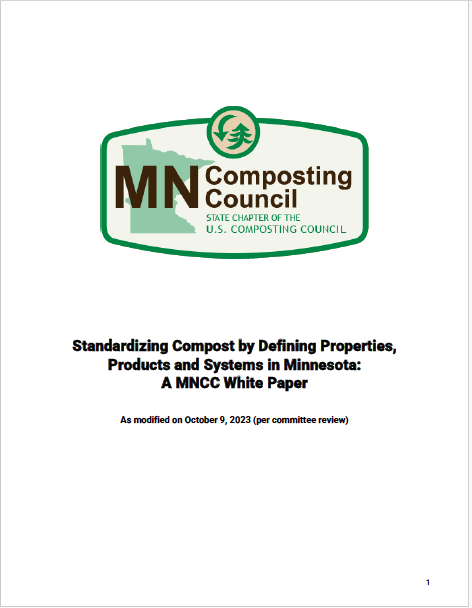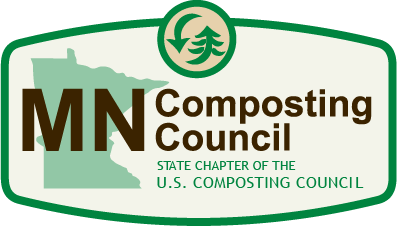|
Executive Summary MNCC Standardizing Compost by Defining Properties, Products and Systems in Minnesota: An MNCC White Paper Minnesota has a rich and storied history of composting with the various types of composting facilities that manufacture these products. Collection and processing of organic materials has received renewed attention and government resources given the large fraction of organic materials in the solid waste stream. A commensurate level of investment is needed for development of effective compost end use markets. This White Paper is intended to focus on the finished end product of “compost”. It is entitled “Standardizing Compost by Defining Properties, Products and Systems in Minnesota” to emphasize this is a process involving many state agencies, non-profit organizations, and private interests (compost community). This White Paper and related workshops sponsored by the Minnesota Composting Council (MNCC) is intended to strengthen the complex relationships within the compost community to move collectively towards enhanced compost quality and more strategic market development. Inferior compost and improper use can be harmful to the environment and be counter-productive to plant growth. Efforts to enhance compost market development will be hampered if compost is proven to be detrimental to soil health and sustainable plant growth. This problem is due in part to the lack of consensus about modern standards for defining “compost”. One cause is that the term “compost” has been used for decades in our every-day common language to describe any product of organic origin that may be reused. |


